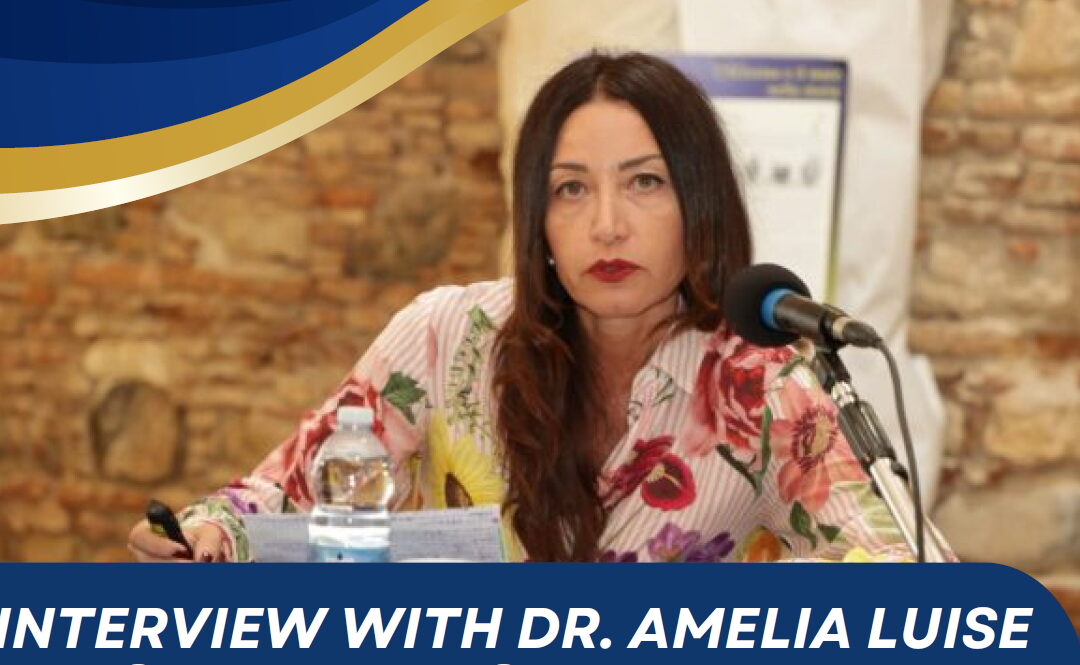Dr. Amelia Luise, for years she has dealt with crimes against the public administration. She has also dealt with mafia crimes and now one of the two appointed European Delegated Prosecutors in Sicily, welcomed us in his office to discuss about the activities conducted so far and the challenges ahead.
How has the establishment of the European Public Prosecutor’s Office been received in your field of work?
“In the first phase, not with mistrust but with a bit of surprise due to lack of knowledge. I found a lot of willingness on the part of all prosecutors (…); at the beginning we were satisfied even with mere reports, almost letters with summaries of the proceedings that they wanted to send us for a possible summons in favor of the European Public Prosecutor’s Office in order to meet their needs to adapt to the new regulations. And now they are gradually adapting”.
Which offences under the Directive (EU) 1371/2017 are most commonly encountered in this geographical area?
At this moment and in our territory of competence, i.e. Sicily and Calabria, aggravated frauds and scams to the detriment of the GEA, crimes against the Public Administration such as the crime of unlawful induction and also the association for the purpose of smuggling (…)” .
What issues arise from the provisions governing the material competence of the EPPO as envisaged by Regulation (EU) 1939/2017?
“At present, there are no problems and indeed we are facilitated by the fact that we have national jurisdiction at the level of the Public Prosecutor’s Office and therefore we do not have conflicts of territorial jurisdiction between the public prosecutor’s offices (…); on the other hand, for now the trial phase is quite specious if the districtisation of the jurisdiction is not started. It is important that the EPPO be able to extend its competence to crimes connected to those against the interests of the Union: I am giving the example of aggravated fraud to obtain European funds
intended to redo the road surface. If to redo this public road they used suitable but resultant material and therefore we are talking about real waste, the waste traffic will be connected to the PIF crime. In the present case, the trafficking of waste would not be our responsibility but since it is connected to the fraud we exercise our competence also for this “.
Do the provisions on cross-border investigations provide an added value compared to the international cooperation mechanisms already in force?
“Yes, very comfortable. Because we, to ask for investigations that were previously the subject of a rogatory letter, now make requests from PED handling to PED assisting, to whom we can ask for measures such as chamber of commerce certificates or seizures, etc. We will not need to make a rogatory request through the Ministry of Justice but we upload the request on our computer system called CMS – Case Management System. It almost becomes an “office next door”, always naturally respecting the national legislation of the place: if we need the authorization of the judge, we will ask our PED colleague to comply and, therefore, to request the authorisation”.
Do you think that the involvement of organized crime in illicitly draining European Union funds could mean the involvement of the European Public Prosecutor’s Office also in this type of investigation?
“Of course, these crimes will fall within our competence in theory and in practice: because if they relate to funds issued by the European Union, they will constitute the largest pool of our competence. And the crime of association can also fall within our competence if it is primarily aimed at committing crimes within our competence. It depends on the purpose offences: as long as they concern EU funds. In practice, if they affect EU funds, they are all within our competence”.
Considers it appropriate for the European Public Prosecutor’s Office to extend its jurisdiction to crimes that are not limited to the protection of the Union’s financial interests or membership of criminal organisations?
“For the speed of the investigation it would be absolutely positive, it is desirable in the field of counter-terrorism”.
PREPARED BY BY SERENA CACCIATORE, CONSTANZA DE CARO, ALEJANDRO HERNÁNDEZ LÓPEZ, CRISTINA RUIZ LÓPEZ AND ANA MARÍA VICARIO PÉREZ.
EDITED BY ANTONY ZHILKIN

